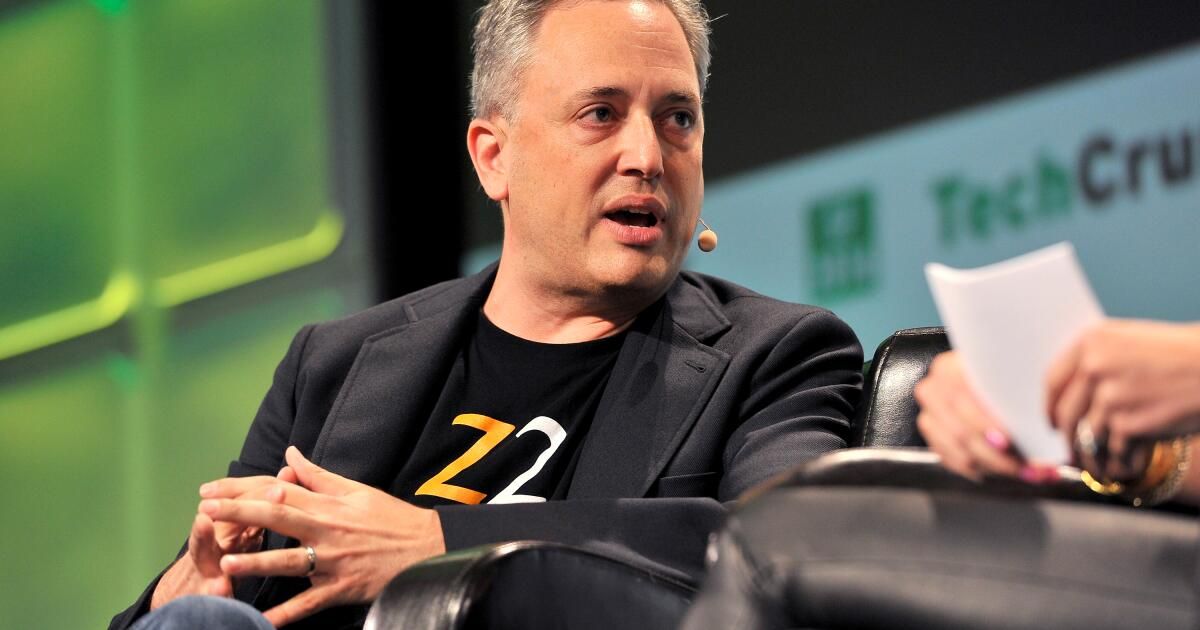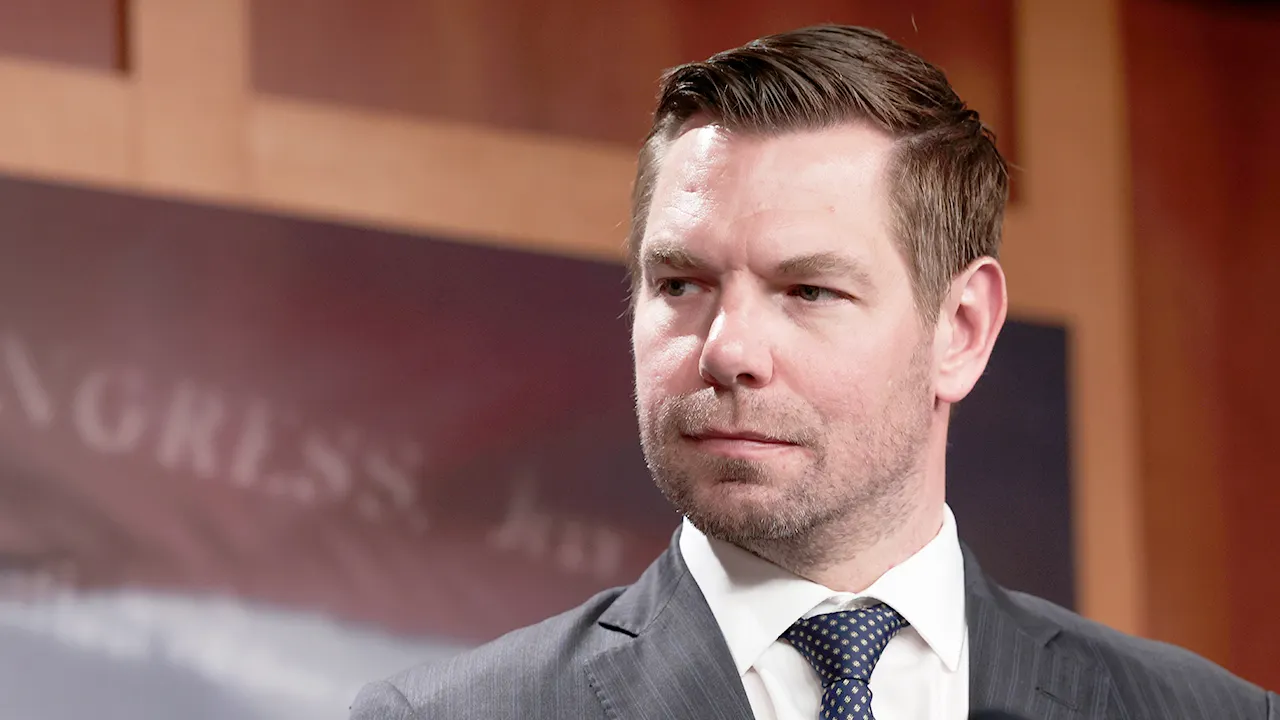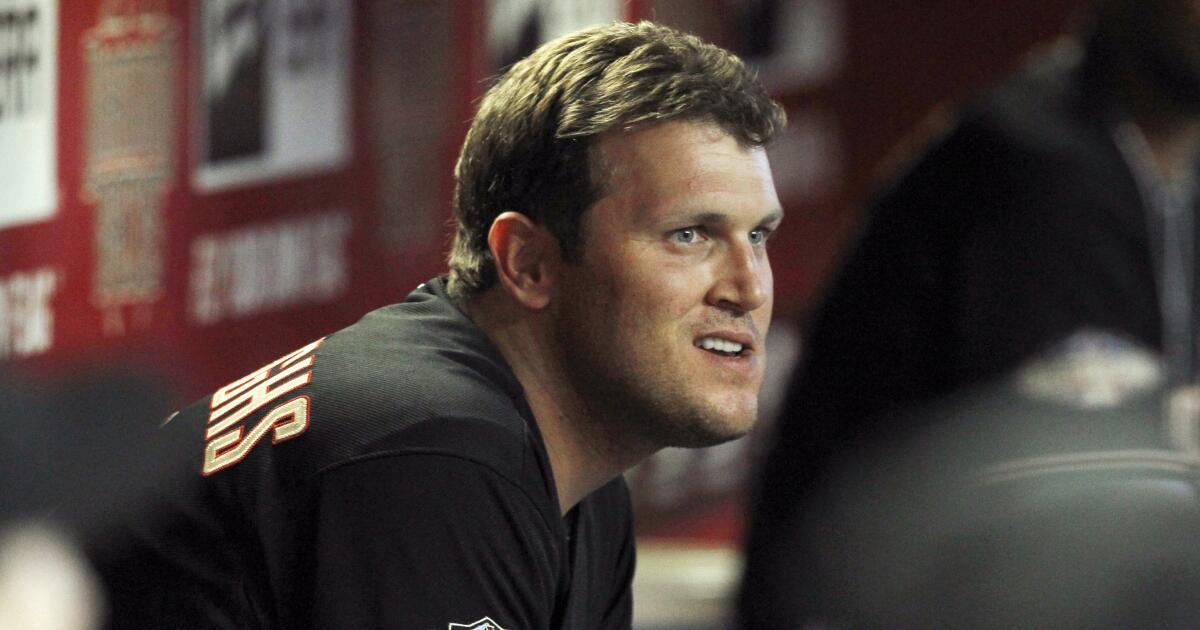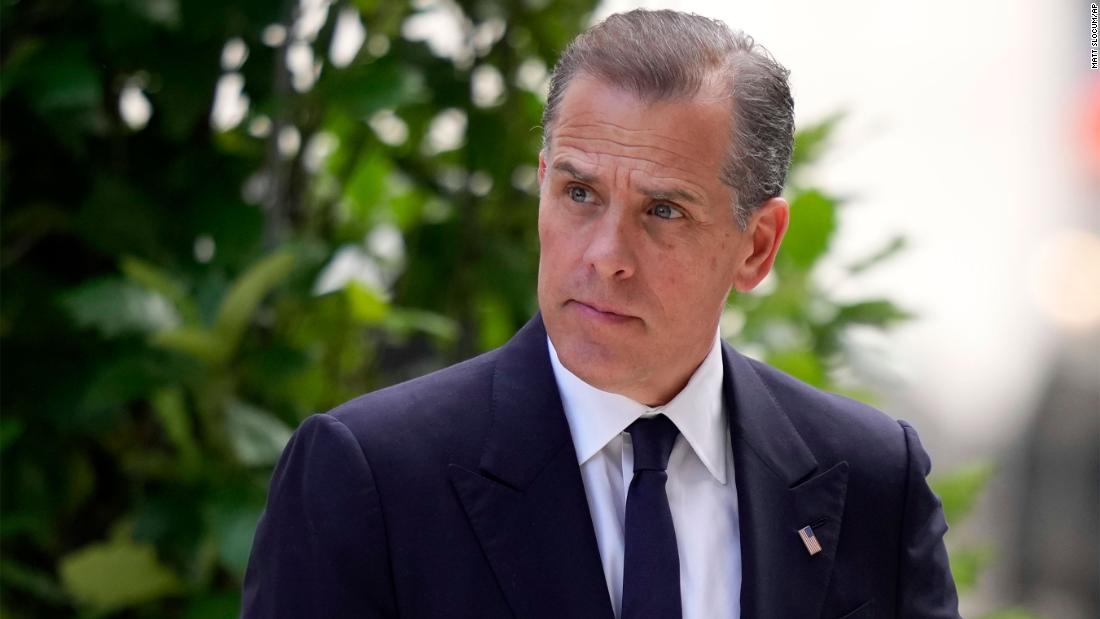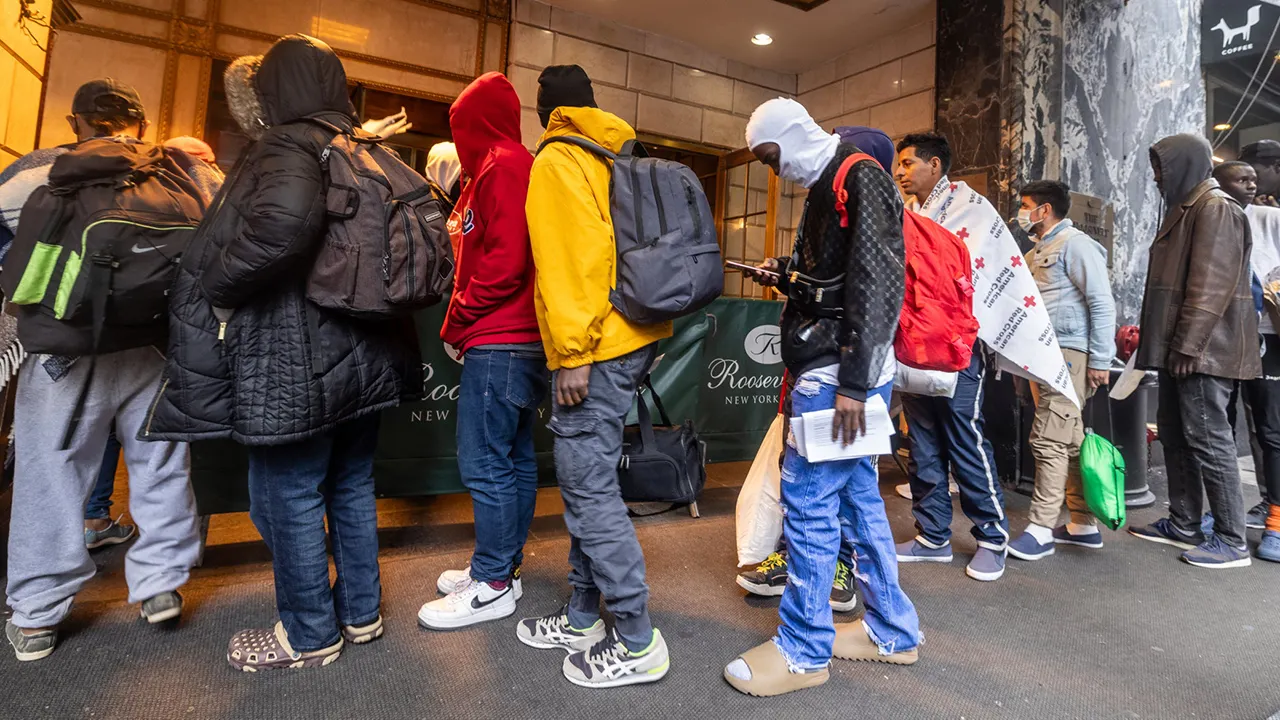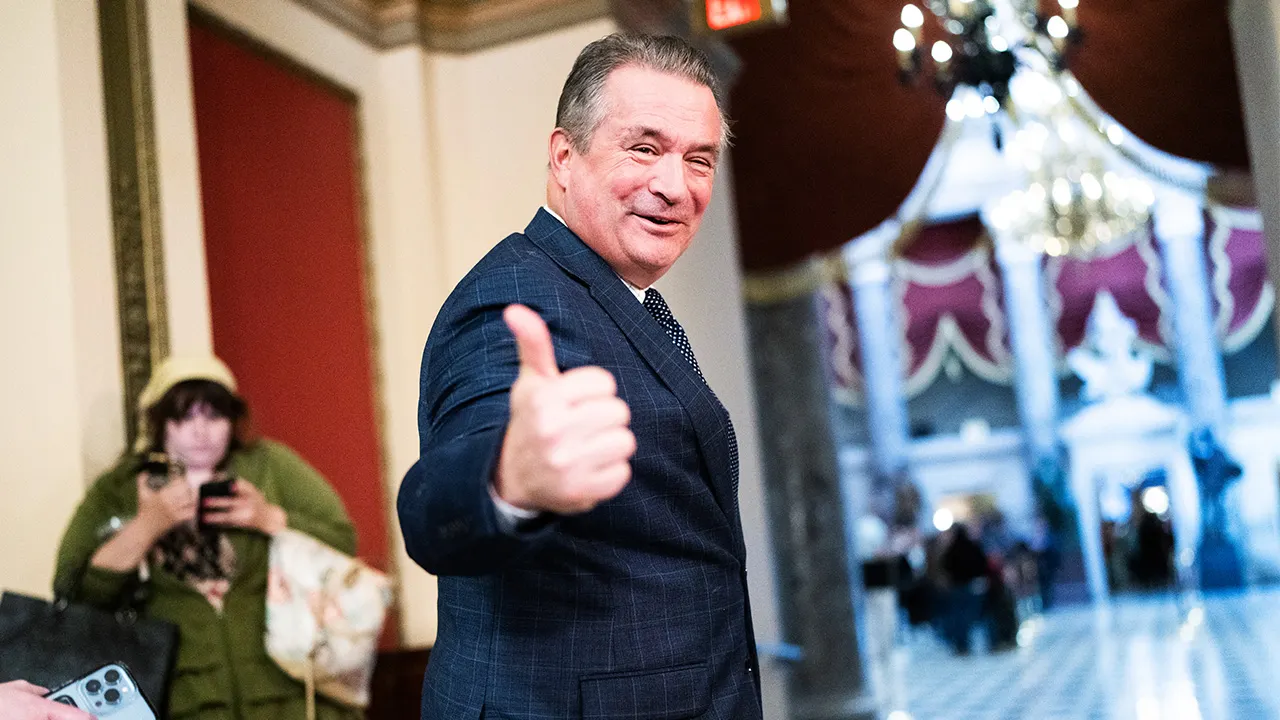If California is the country's political fundraising powerhouse, Silicon Valley has become one of the increasingly dominant forces in campaign money. And while Northern California tech entrepreneurs overwhelmingly support Democratic candidates, a small but powerful group of defectors has shifted to the right in recent years.
A gathering of tech's conservative cohort enjoyed a visit from former President Trump Thursday night at a swanky fundraiser held at the San Francisco home of venture capitalist David Sacks. The estate, located on Billionaires' Row in Pacific Heights, welcomed some 80 elite guests to the sold-out event. Entry fee: Up to $300,000 per person and $500,000 per couple, according to an invitation obtained by The Times.
“It was a couple of hours of high-quality networking in a very beautiful private home,” said Harmeet Dhillon, a Republican national committee member from California and a San Francisco-based attorney serving as an official legal surrogate for the Trump campaign. “All the seats were occupied. “It was totally packed.”
The meeting raised $12 million, Dhillon added.
Across the country, technology leaders and employees have invested millions in politics. People working in the communications and electronics sector, which includes technology companies, have donated $18.1 million to Biden and groups supporting his campaign, and $1.4 million to Trump and organizations that support his effort this year, according to campaign finance data released May 21 by the Federal Election Commission.
The analysis of the contributions was conducted by Open Secrets, a nonpartisan group that tracks election finances. The total donated to candidate committees and outside groups supporting the campaigns amounted to $25.8 million, of which 71.7% went to Democrats and 22.1% to Republicans.
In Silicon Valley itself, the geographic area considered the center of the technology industry and includes San Jose, Menlo Park, Palo Alto, Mountain View, Cupertino, Santa Clara, Redwood City and Sunnyvale; About 3% of donors who gave to a Democratic candidate in 2016 or 2020 donated to Trump in the next cycle, a Times analysis of FEC data found. While many tech leaders and workers live in these cities, many other residents of this region do not work in the industry.
Protesters call for a ceasefire in Gaza as Vice President Kamala Harris arrived at a fundraising event in San Francisco on Wednesday.
(Anabel Sosa/Los Angeles Times)
“Silicon Valley and the Bay Area are the beating heart of the global innovation ecosystem. Given the region's economic dynamism, as well as its cultural, technological and social impact, it should be no surprise that more candidates are engaging with our business leaders,” Ahmad Thomas, CEO of Silicon Valley Leadership Group, said in a statement. . “That is part of the reason why our region will continue to be a political powerhouse, helping to set a national agenda that supports innovation, entrepreneurship and growth.”
While a portion of the population is increasingly drawn to Trump's friendliness toward emerging technologies like cryptocurrencies, Silicon Valley remains reliably Democratic. The region's technological world is known for its tendency towards disruption, with a historical libertarian vein.
“Obviously there have been some defections, but the reality is that the vast majority still supports the president,” said Rep. Ro Khanna (D-Fremont), who represents Silicon Valley in Congress.
On Wednesday, Vice President Kamala Harris attended a fundraiser in Oakland Hills before appearing before a crowd of about 100 people in San Francisco. During a 13-minute speech, she called for a ceasefire in the war between Israel and Hamas and for Hamas to return the remaining hostages to Israel.
His comments did not satisfy the crowd of protesters outside the venue, who chanted “Shame on you!” when Harris arrived.
Khanna recently convened 100 tech leaders to a retreat in Napa to inspire them to stick with the Biden administration.
“Democrats must have a clear vision on how to celebrate entrepreneurship,” Khanna said. “Yes, there need to be safety barriers and intelligent regulation, but we must be in favor of innovation. We need to be in favor of entrepreneurship. We need to be in favor of wealth generation. “We need to be future-oriented.”
But for some Silicon Valley tech executives, being future-oriented means campaigning for Trump.
In it last episode On his podcast, “All-In,” Sacks and his fundraiser co-host, Chamath Palihapitiya, emphasized that they had previously hosted fundraisers for independent presidential candidate Robert F. Kennedy Jr. and Trump's former Republican opponent , Vivek Ramaswamy.
Palihapitiya, a person who describes herself as “apolitical,” said she had donated to Democrats in the past, including when she joined Sacks for Trump's fundraiser on Thursday. The two podcasters joked about the criticism their other two co-hosts, Jason Calacanis and David Friedberg, were receiving for associating with Trump supporters.
“I think you guys are getting more negative reactions, and that's an indication of a kind of cowardly response. “It’s like a cancellation tactic,” Sacks said. “And I think the reason they're doing it is because, frankly, there's a lot of preference falsification going on in Silicon Valley.”
Cian O'Brien, a businessman and former vice president of a Sunnyvale technology company, said he has become a pariah in Silicon Valley since pledging allegiance to Trump. He said that he had supported Democrats throughout his life, although he did not vote for President Obama. After donating to former Secretary of State Hillary Clinton's campaign in 2016, O'Brien, 56, said he switched his support to Trump after seeing how “the apparatus” — the media and other government institutions ) were against him.
“They consider it a threat, because there it's going to expose or repress… whatever their particular set of operations are,” O'Brien said. “And most operations revolve around people enriching themselves with power and money.”
Nibbling on American flag toothpick sandwiches, mini lobster rolls and a dessert buffet, attendees at Sacks's fundraiser included the Winklevoss twins, famous for their dispute with Mark Zuckerberg over the creation of Facebook; Coinbase Executives; and some AI leaders. Also in attendance were Ohio Sen. JD Vance and North Dakota Gov. Doug Burgum, who are reportedly being vetted as potential Trump running mates.
Trump spoke for about an hour on a wide range of topics, including artificial intelligence, cryptocurrencies and being a victim of deepfakes, prompting a young artificial intelligence executive to give a detailed explanation about the use of encrypted keys. He also argued that the world was safer under his administration, the border safer, and criticized transgender women being allowed to play women's sports.
The former president did not directly address the 34 felonies for which he was convicted last week, but spoke broadly about the justice system, Dhillon said.
“I was in a very good mood. He said there were some terrible judges out there. It wasn't specific; “He knows he’s under a gag order,” she said. “He said that Republican judges do everything they can, they do everything they can to appear fair, to be fair to the other side. And the Democrats are salivating, they can't wait to get their hands on the gavel and do what they want politically.”
Outside Sacks' multimillion-dollar residence, police blocked off six city blocks surrounding the Pacific Heights residential enclave. Some attendees climbed inside black Escalades, while others arrived on foot or by motorcycle. Many arrived in pickup trucks waving large flags that read “Trump 2024.” A driver exchanged fist bumps with a passerby while he was at a stop sign. A group of high school-aged girls stood nearby, wearing Trump baseball caps.
“It's a historic event,” said Jen Kelly, 60, of Sacramento, who calls herself a lifelong Republican. “I know it's a private fundraiser, but the fact that Trump is in California is very strange.”
After his time in Silicon Valley, Trump traveled south, with fundraising events planned in Beverly Hills and Newport Beach for the weekend.
Sosa reported from San Francisco. Ahn, Mehta and Pinho reported from Los Angeles.

